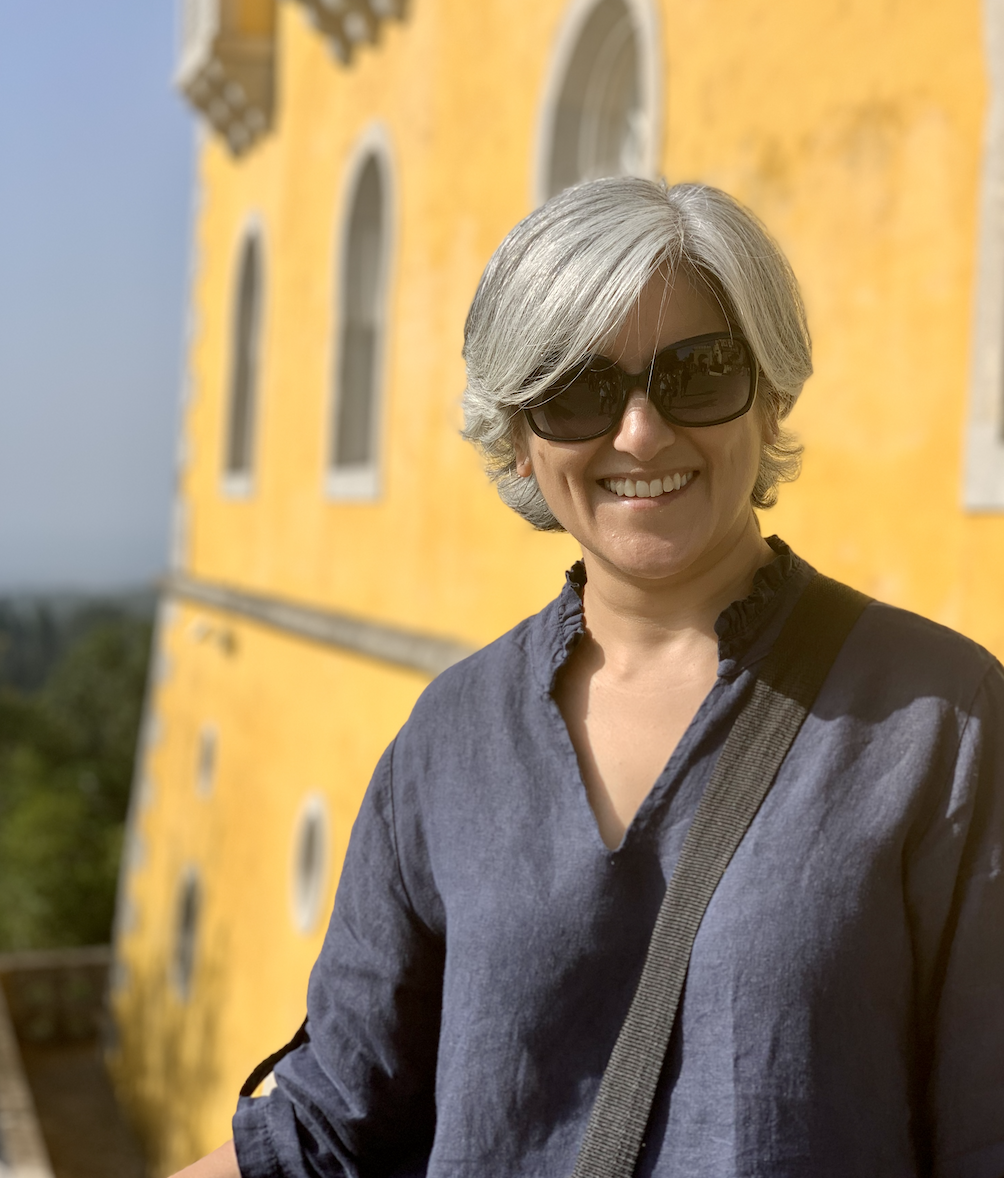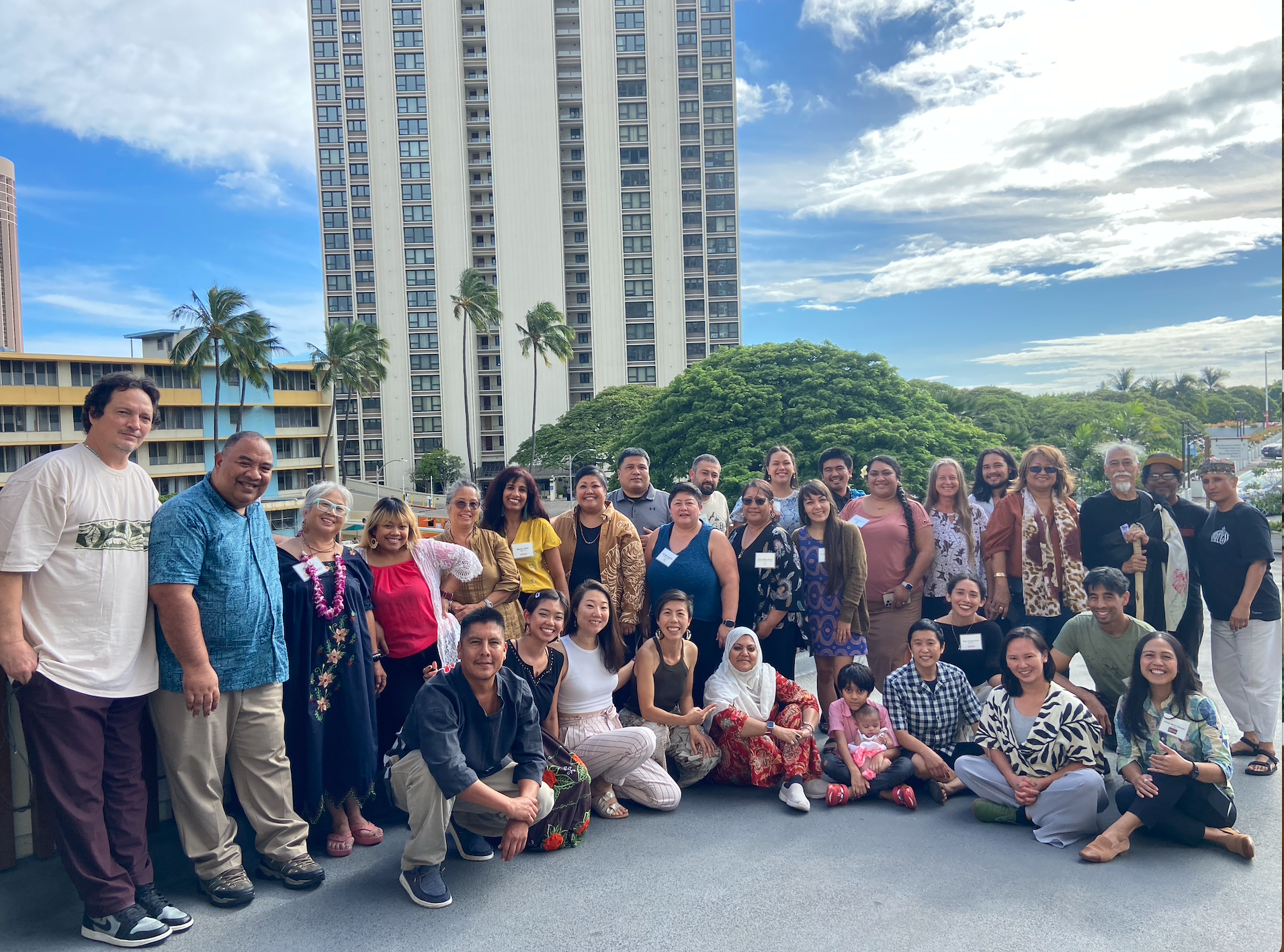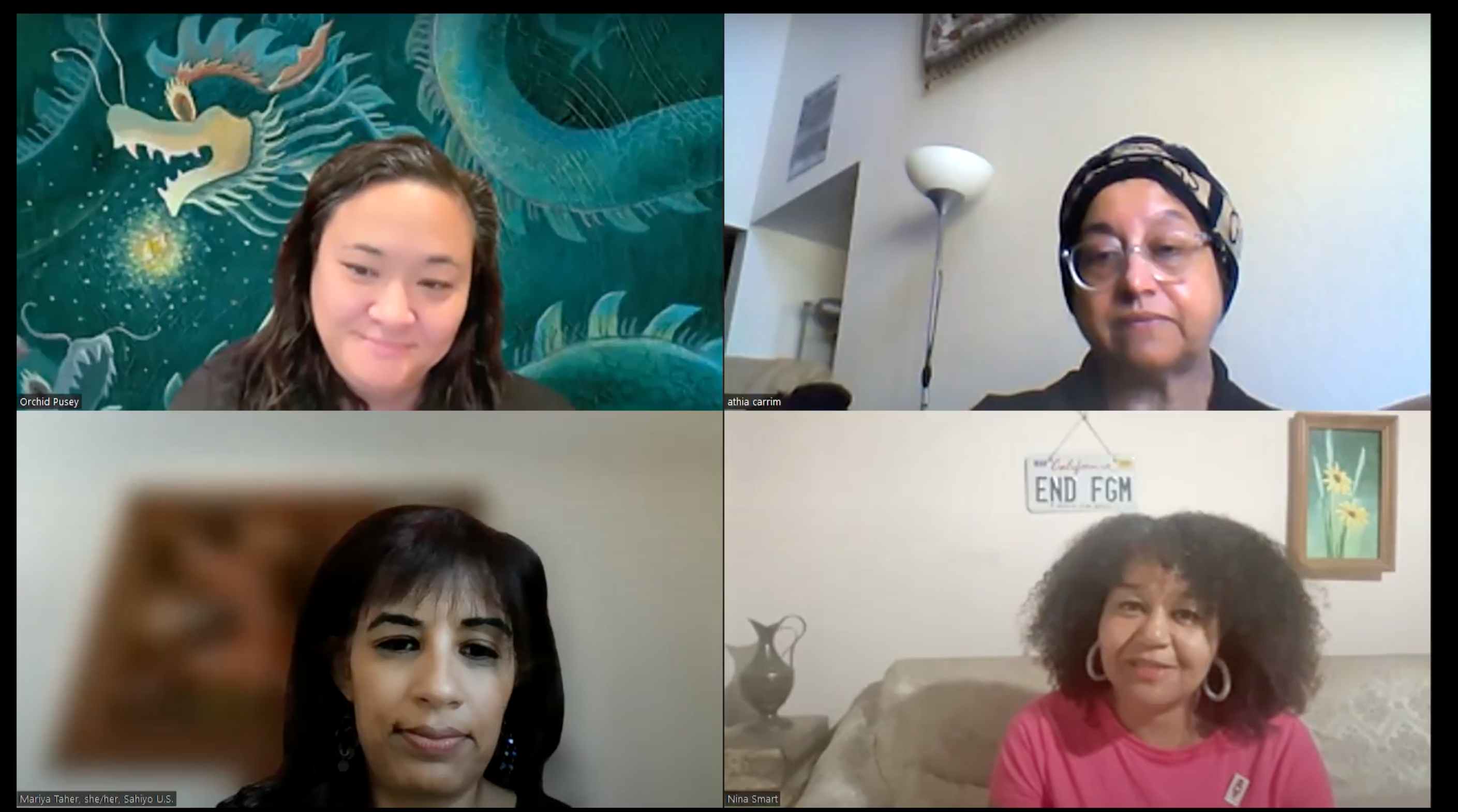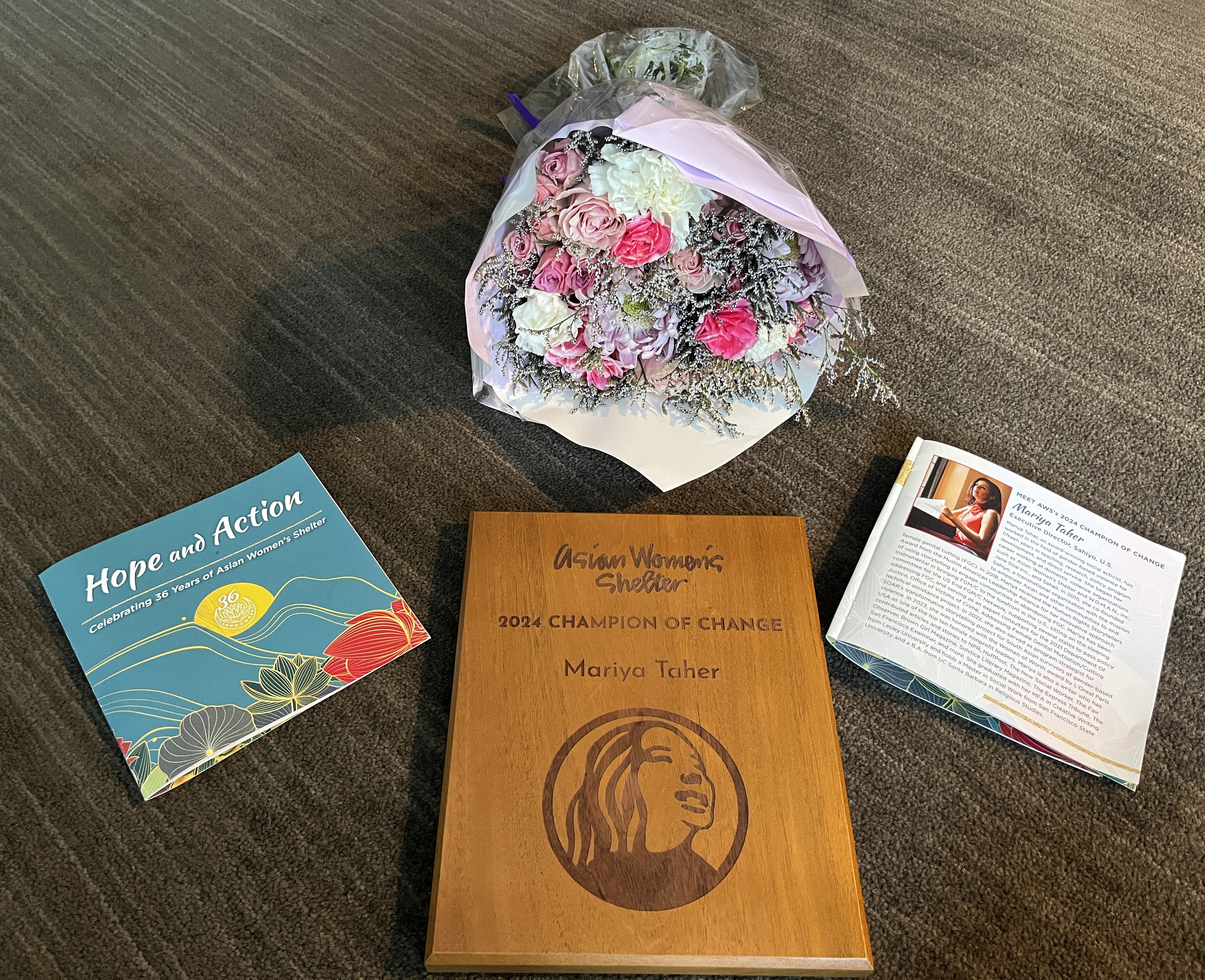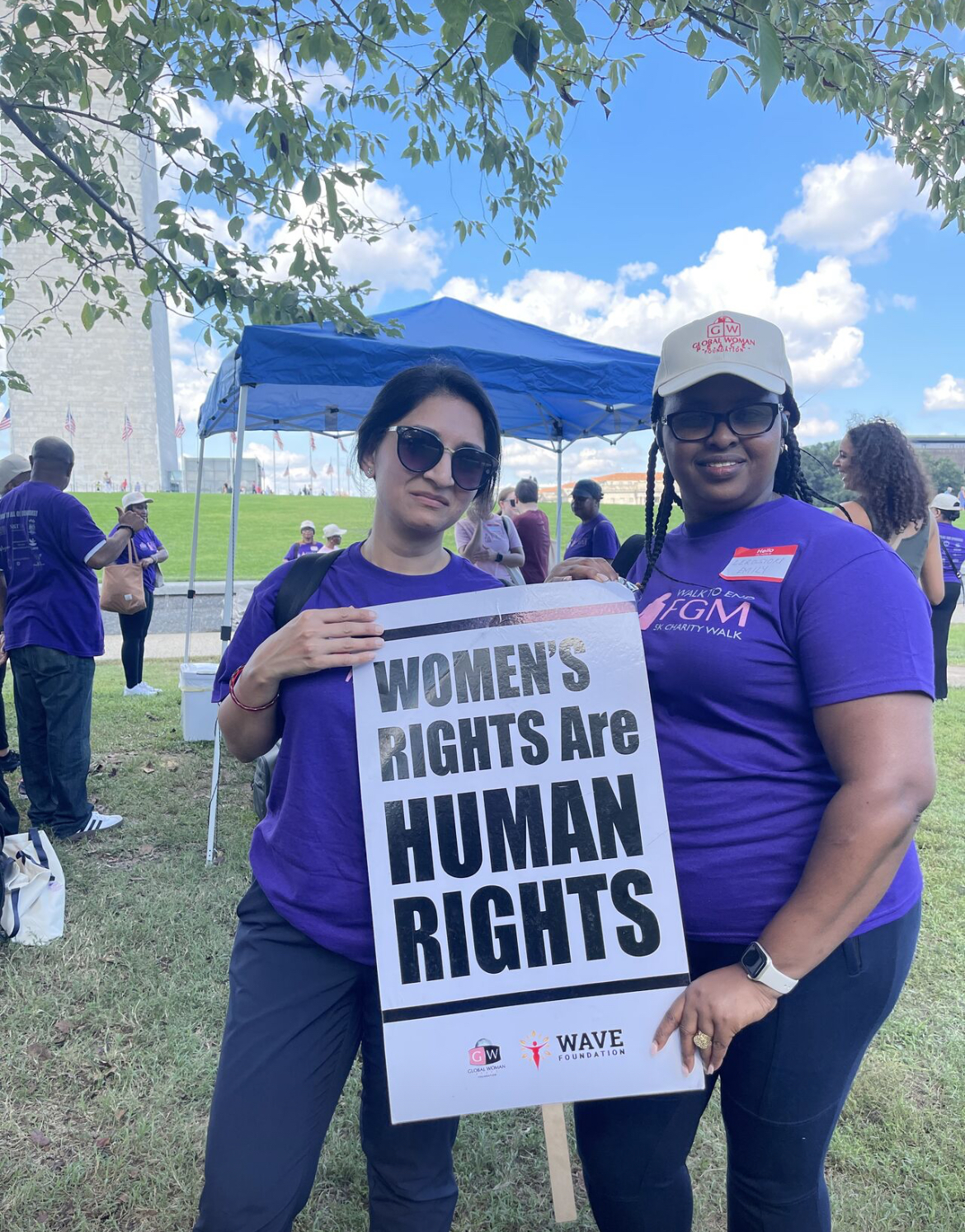Recently, policy interns at Sahiyo have been interviewing members of the Connecticut (CT) Coalition to End FGM/C to learn more about its members and all the important work they contribute toward ending female genital mutilation/cutting (FGM/C). For the first two blogs, we interviewed Caitlin LeMay and Joanne Golden. In our third blog, Sahiyo’s policy intern, Juliet Shires, spoke to Zehra Patwa, Sahiyo U.S.’s Advisory Board Chair and co-founder of WeSpeakOut.
When she was in her 40s, Patwa discovered that FGM/C was taking place in the Dawoodi Bohra community she belongs to.
“I was shown an interview that my cousin had done for a TV documentary in Australia, talking about her experience of FGM/C in the Bohra community [...] I thought ‘Oh, that’s terrible that she had to go through this.' And at the end of the interview, she said that all the girls in her community had been cut and I could not even fathom that. The women [in my community] have always been highly intelligent, and progressive role models…so to hear that women in the community were doing this practice on young girls just blew me away. It took me a while to even accept that it was happening.”
Then came another shock: Patwa learned that she had undergone FGM/C when she was just seven years old, but had no recollection of the event. She decided that she needed to do something to end the practice of FGM/C in her community and beyond. Her cousin invited her to join a WhatsApp group chat where she met the Sahiyo co-founders and Masooma Ranalvi, who would later co-found WeSpeakOut with Patwa.
“I had to do something with this anger, with this shock, with all of these things I was feeling, and this lack of clarity that I had of what happened to me…I could not bear the thought that this was still happening to other girls. Part of the awfulness of this practice, for me, is that you don’t even give girls and women a chance, by cutting them…you risk so much pain, so much trauma.”
A large part of her advocacy relates to her work with her own organization, WeSpeakOut, a partner of the CT Coalition and Sahiyo. WeSpeakOut is primarily focused on making FGM/C illegal in India, though it also works on other issues that impact women in the Bohra community. Their work involves research studies, petitions, and creating a legal framework for legislation banning the practice:
“Because India is the seat of the Bohra community — that’s where the religious head is based — we figured if [FGM/C] was made illegal in India, then the Bohra diaspora all over the world would agree that the practice is illegal and would discontinue it. Sadly, passing a law in India involves many hurdles but we are seeing glimmers of social change in the community just by talking about this issue.”
Patwa explains that speaking out has led to many conversations, many of which have highlighted how important education is in making meaningful changes against FGC:
“When I started my activism in 2015, and started speaking out publicly in 2016 — which was terribly nerve-racking — so many people said to me, ‘Oh, I had no idea this happened here.’ I think people don’t realize how widespread this practice is. People want to know how many women and girls are cut…well, there’s no way of really knowing for sure, but it’s been estimated that there are more than 2,500 girls at risk in Connecticut alone, but the number is potentially much higher because it is such a clandestine practice. The states surrounding Connecticut have anti-FGM/C laws but Connecticut doesn’t, which makes our state a destination for cutting. [People I talk to often express surprise that] it’s a cultural practice, not a religious one.”
She also emphasized the importance of empathy and understanding when creating legislation and advocating against the practice:
“The parents who take their girls to be cut are not monsters…they’re being pressured into doing it because they’re told it’s the right thing to do by the trusted elders in their community. With education and the support of the law, parents can make an informed decision, backed by facts and others’ experiences, to protect their daughters.”
Patwa expressed disappointment that a law has still not been passed in Connecticut, but remains hopeful:
“It’s been disappointing that our bill has not made it into session three years in a row…it was a little disheartening at first but we are determined to continue working to pass this law because, even though we may not have huge numbers of girls at risk, we have some. And as far as I’m concerned, one girl cut is one too many. I know how much Connecticut cares about people and tries to do the right thing. I know in my heart that this law will be passed because it’s absolutely the right thing to do.”
For people who would like to get involved in FGM/C activism, Patwa’s advice is simple:
“Educate yourself, talk to people, reach out to people. Anybody at the Connecticut Coalition and at Sahiyo is very willing to help… And any organization that wants to become part of the coalition is welcome to lend their support: the more broad the coalition, the more helpful it will be to pass this law.”
Patwa’s own experience with the Connecticut Coalition and the support it has received has strengthened her belief that FGM/C can end.
“I truly appreciate all the allies who work to help survivors and prevent this practice. The Connecticut Coalition is now huge — there are many organizations involved. It’s heartening to have so many allies, who may not be from FGC-practicing communities, but who understand that there are so many different ways that they can help. It makes me tear up thinking about how much people care about others with different experiences from themselves. It gives me hope that we will see the end of this practice in my lifetime.”
We would like to thank Zehra Patwa for taking the time to sit down with our policy intern and for her continued work with the CT Coalition.
Want to get involved?
- Visit: https://endfgmcinct.com/, for more information or contact the CT Coalition
- Visit: https://www.wespeakout.org/
- Volunteer with Sahiyo
- Sign the petition to end FGM/C in CT

